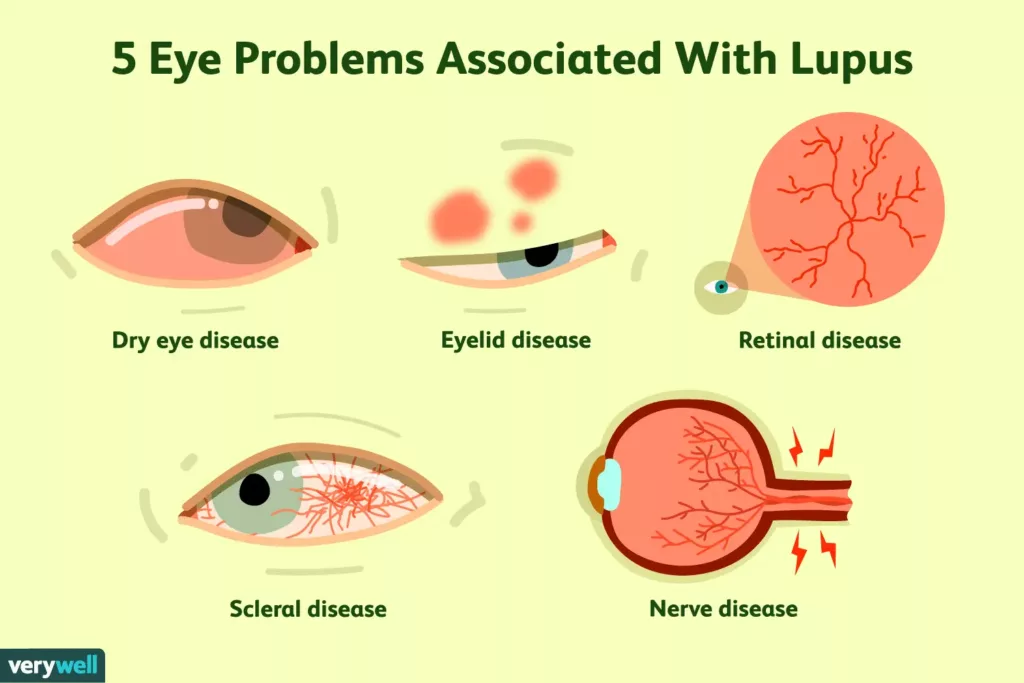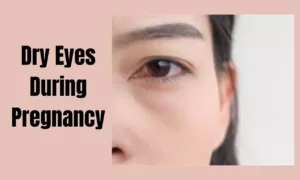Introduction
Are you wandering around to explore lupus and vision problems? Lupus is widely considered an intricate autoimmune disease that can be deadly for the whole human body, including the eyes. A global survey report tells the fantastic statistics of about 1.5 million people affected only in the U.S. Though lupus can harm several body parts and internal organs, it has an inclusive variety of symptoms. It is considered a thousand-faced disease in one disguise. However, it must be treated very carefully to get rid of it. Thus, this article will examine all about lupus and vision problems. So, skim the article carefully.
Can Lupus Cause Vision Problems?
This question of lupus and vision problems often arises in the minds of ordinary people, and the simple answer is yes. It can even be lethal regarding vision among individuals if not adequately treated or overlooked; it increases speedily, and it has been observed that vision loss occurs in many cases due to lousy look after throughout. In this article, we will try our best to explore the connection between lupus and vision problems and how to attend it commendably to be well cured.
Lupus And Vision Problems
Lupus has a deep connection with vision issues that are full of frightening complications and have detrimental effects on an individual’s quality of life. It is so hazardous for the many eye parts that it leads to severe vision issues. Researches show women between the age of 15-44 years and certain racial groups or those people who are ingrained with family history mostly become the victim of Lupus.
How Lupus Works?
The eye is the most significant part of the human body and consists of many vital like the cornea, iris, and macula. An individual uses all these parts simultaneously to see the surroundings. The human eye consists of many structures, such as the cornea, iris, and macula, which work together to see. It includes many blood vessels and optic nerves that are correctly functioning. When Lupus occurs, it starts damaging the structures of the eye and causes inflammation of both blood vessels and nerves, resulting in loss of vision.
Common Eye Conditions Are Related To Lupus

Dry Eye
Dry eye, known as keratoconjunctivitis sicca, is one of Lupus’s most common eye hitches. Statistics reveal one-third of people with SLE may be affected by dry eye syndrome worldwide.
Various reasons can cause dry eye symptoms; often, they result from the tear ducts not producing enough tears or the tears drying up too fast without sufficiently lubricating the eye.
Other symptoms of dry eye include:
- An itchy feeling in the eye
- Stinging or burning sensation
- Redness
- Lupus and vision problem
- Light sensitivity
Ophthalmologists may often treat mild cases with everyday artificial tear eye drops. In severe or chronic cases, eye specialists use other immunosuppressive medications like cyclosporine (Restasis) or corticosteroid eye drops.
Scleritis
Scleritis is a term which is used for inflammation of the sclera. Sclera is the white fragment of the eye, and painful conditions may occur in Sclera 1% of those with SLE. It could appear as the first symptom of this disease in some cases. Scleritis has two types: anterior scleritis, which is deadly for the front eye and posterior uveitis, which harms the back.
The symptoms of scleritis may include:
- Pain
- Redness
- Tenderness of the eye
- Blurry vision
- Tearing
- Light sensitivity
Treatment for this Lupus is based on both remedies: oral corticosteroids, immunosuppressant medications, and IV biologics that ideally target inflammatory trials.
Retinal Vascular Lesions
Retinal vascular lesions denote blood vessel changes in the retina around a light-sensitive layer of tissue in the back of the eye. About 10% of people with Lupus become victims of retinal vasculitis by retina involvement. This type of Lupus is considered generally more active in the body.
Mild cases of retinal involvement may experience no symptoms. However, vision distortion and floaters in the eye may sometimes occur.
When To Contact A Doctor
Lupus, throughout itself, is a complex issue. This is a solvable matter when a person may need to visit an ophthalmologist who can ideally determine the exact cause.
This is a better consultation that if a person with Lupus is experiencing vision disturbances or any discomposure in their eyes, they instantly consult an eye doctor for a proper examination. One’s eye can display many symptoms of Lupus in many ways that may become even more severe subsequently if not ideally treated.
Conclusion
This is a perfect suggestion for all men and women. If one starts to deal with a bit of discomfort in their eyes, instantly consult an ophthalmologist to be cautious of Lupus or any severe eye diseases. Potential eye problems are associated with the disease, and we ask for preemptive steps to protect and manage eye health. Regular eye exams, communication with your family doctor, and a healthy lifestyle can play a part in preserving vision and maintaining a good quality of life, including for those living with Lupus. Remember, early intervention and timely care are essential to effectively addressing lupus and vision problems.
FAQs
What are lupus and double vision?
Lupus can cause double vision due to the inflammation that affects the eye muscles.
What is lupus and blurry vision?
Another symptom of lupus is blurry vision that is caused by the inflammation in the retina.






